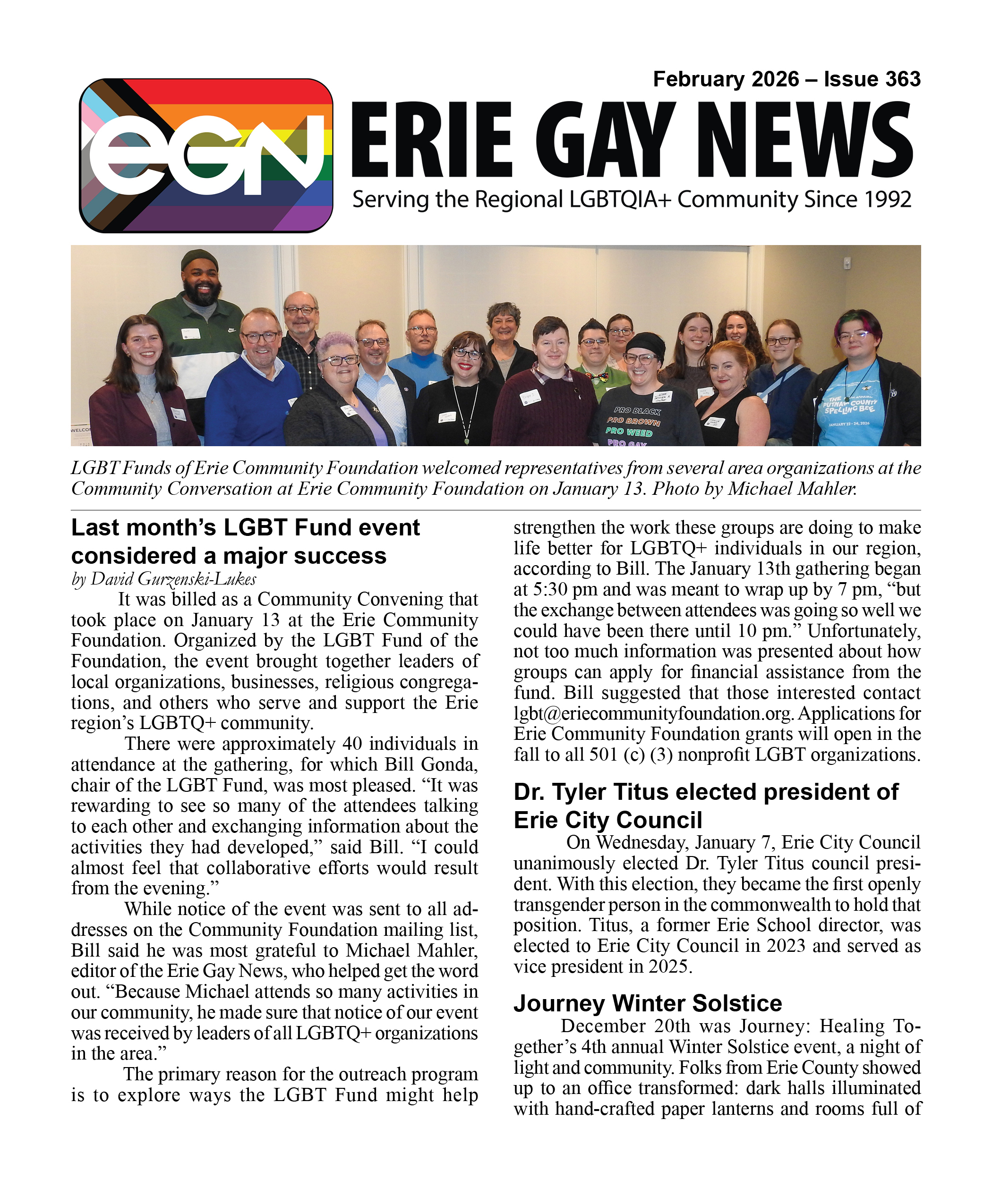LGBTQ Equality Maps and State Bills Updates for March 2023
Included in this update:
- State policy updates
- Local level policy updates
- Two new Equality Maps
- MAP's LGBTQ Equality Bill Tracker
State Policy Updates
Additional details about these policies and updates to our maps are available on MAP's blog. Click here to read more.
Nondiscrimination protections
- Michigan passed a bill adding sexual orientation and gender identity to the state's nondiscrimination law?-?covering employment, housing, public accommodations, and education. Michigan's governor signed the bill into law on March 16.
- New reporting by ProPublica revealed that Alaska recently rescinded its nondiscrimination protections for LGBTQ people in many areas.
Identity document laws and policies
Illinois enacted improvements to its process for updating the gender marker on birth certificates. Illinois was already in the best category on our map for this policy, but this change removes even more barriers.
LGBTQ-inclusive family policies
Illinois also enacted a new law requiring paid leave for all workers, for any reason.
Our maps track whether states have family/medical leave laws and whether they define "spouse" and "child" in LGBTQ-inclusive ways.
Medical care for transgender youth
- Bans on best practice medical care for transgender youth were enacted in South Dakota, Florida, Mississippi, and Tennessee.
Including Utah's ban earlier this year, five states have enacted bans in 2023 alone. There are currently eight states total with a ban.
- Additionally, Arkansas?-?the first state to enact any medical care ban for youth?-?just enacted a second law, SB199.
- Mississippi's new ban on medical care for transgender youth also banned the state's Medicaid program from covering transgender-related care for minors.
That ban was enacted shortly after the state's Medicaid director sent a letter to the major insurers in the state saying that Mississippi agrees with Florida's Medicaid determination that minors should not have access to best practice medical care.
- Missouri's attorney general announced an "emergency regulation" on March 20 to effectively ban best practice medical care for transgender youth. The legality of this remains in question.
Missouri is one of three states where steps have been taken (beyond introducing a bill) to ban or restrict best practice medical care for transgender youth, but where state law does not ban this care. Our map will continue to be updated as this situation unfolds.
Bans on sports participation for transgender youth
- The ban on transgender athletes in West Virginia has again been temporarily blocked?-?this time by the 4th Circuit Court of Appeals. The law is still on the books, but for now it is unenforceable.
- In Wyoming, a ban on transgender youth participation in sports for grades 7-12 became law without the governor's signature. Wyoming is the 19th state with this kind of sports ban, and this moves the state from "Low" to "Negative" in MAP's gender identity tally.
For context, the last two sports participation bans to become law have both been without a governor's signature (see Louisiana's ban enacted in 2022).
- In Kansas, the governor vetoed?-?for the third year in a row?-?a ban on transgender youth participation in sports. The bill now heads back to the legislature for a potential veto override attempt.
Education policies for LGBTQ youth
- Arkansas enacted a new "Don't Say Gay or Trans" school censorship law, applying to grades K-4. It was part of a 145-page education "reform" bill that also contained extensive provisions censoring discussions of race and more.
- Iowa formerly had explicit guidance for the treatment and inclusion of transgender students. This was first issued in October 2017 and was publicly available until at least January 2022. As early as March 2022, the page was replaced with a notice saying the guidance was "being reviewed for continued legal accuracy in light of recent court decisions," though did not reference which court decisions.
Now, the page and that notice have both been entirely removed, and no other similar state-issued resources are available on the state's website. As a result, it seems that Iowa has quietly rescinded or at least removed this guidance, and we've updated our map to reflect this.
Religious exemption laws
West Virginia enacted a new broad religious exemption law?-?which is sometimes called a "Religious Freedom Restoration Act" or RFRA.
Generally speaking, this type of law permits people, churches, non-profit organizations, and sometimes corporations to seek exemptions from state laws that they believe burden their religious beliefs. The individual person or organization must seek out the exemption, such as through court proceedings.
West Virginia is now the 24th state in the U.S. with such a law.
Restrictions on drag performances
Tennessee became the first state to enact a law restricting drag performances.
With a new drag restriction and a medical care ban both enacted this month, Tennessee has now fallen to last place on our LGBTQ Policy Tally rankings.
Anti-LGBTQ bills awaiting decisions
In addition to the updates above, there are multiple anti-LGBTQ bills on governors' desks. Our relevant maps will be updated if and when these bills are enacted. Note that the following may not be an exhaustive list, as bills are moving rapidly.
- Medical care bans for transgender youth are awaiting a decision from the governors in Iowa (SF538), West Virginia (HB2007), and Georgia (SB140).
- New and burdensome requirements for birth certificate changes in Utah (SB93).
- An omnibus anti-transgender bill in Kentucky (SB150) with many harmful provisions, including but not limited to: banning schools from using a transgender student's pronouns; promoted outing of transgender students; a school bathroom ban for transgender students; a "Don't Say Gay or Trans" law for all grades K-12; and?-?added in amendments at the eleventh hour?-?a medical care ban for transgender youth.
Updates to LGBTQ Equality Maps
- Medicaid Coverage of Transgender-Related Care Map
A new category has been added to reflect that some states now have transgender-exclusive policies that are specific to youth only.
In the past, states have had policies that exclude transgender-related care in general, but now, some of the newly enacted bans on medical care for transgender youth also include bans on Medicaid coverage of this care for youth.
New LGBTQ Equality Maps
MAP recently released two maps tracking newly emerging anti-LGBTQ laws:
Many of these bills also prescribe criminal penalties. We've added restrictions on drag performances to our "Criminal Justice" category of laws.
These provisions are often included in bans on medical care for transgender youth, and similar language is frequently found in school-focused bills.
MAP's LGBTQ Equality Bill Tracker
To continue highlighting trends across the country, included below are our current bill-tracking counts for LGBTQ-related bills in state legislatures.
Note that these counts may differ from other organizations or public counts for a variety of reasons, and this work is greatly facilitated by the leadership and work of other organizations including the Equality Federation and their member state groups.
As of March 21, 2023:
At least 580 anti-LGBTQ bills have been introduced across at least 45 states.
- This is an increase of 170 bills compared to our February 2023 bill-tracking report.
- Note: Louisiana still has not yet begun its state legislative session.
At least 132 anti-transgender medical care ban or related bills have been introduced across at least 33 states.
- This is an increase of 28 bills compared to February 2023.
At least 67 anti-transgender athlete/sports ban or related bills have been introduced across at least 27 states.
- This is an increase of 9 bills compared to February 2023.
At least 47 anti-drag bills have been introduced across at least 17 states.
- This is an increase of 9 bills compared to February 2023.
To schedule an interview with a MAP researcher or for questions please contact Rebecca Farmer at rebecca@mapresearch.org.
About MAP: MAP's mission is to provide independent and rigorous research, insight and communications that help speed equality and opportunity for all. MAP works to ensure that all people have a fair chance to pursue health and happiness, earn a living, take care of the ones they love, be safe in their communities, and participate in civic life. www.mapresearch.org







